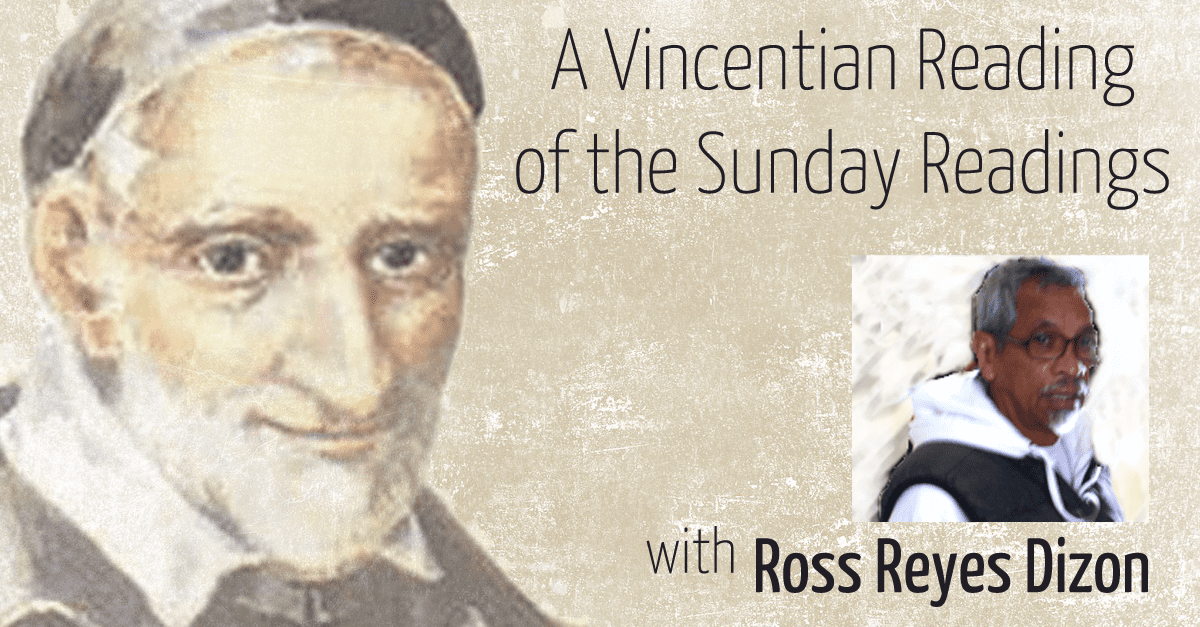Jesus is our Savior. He saves us from sin and frees us from those with sacrilegious claims. And he gives us his Holy Name.
Jesus is born in Bethlehem. And shepherds visit him, the ones that we deem the least to make claims to greatness. But God makes known to them through an angel the Savior’s birth.
No doubt, the mention of Bethlehem and of the shepherds sends us back to the choice and anointing of David. God took him from being a shepherd so that he might lead Israel. He is the youngest son.
There is thus a hint that Jesus is the Savior that God raises up in the house of David. He is the Messiah who fulfills all the law and the prophets promise. That is why the crowds will later hail him with hosannas. They will proclaim: “Blessed is the king who comes in the Lord’s name. Peace in heaven and glory in the highest.”
But there is also the reminder about God’s way. He does not see as the humans who look at the appearance. And he who looks at the heart favors the lowly who cherish his words (Is 66, 2). He lifts them up and he fills the hungry with good things.
And the Mighty One does great things for them. He even makes a virgin, his lowly maidservant, bear a son. He does so since his name is holy and his mercy knows no bounds.
But he rejects those who brim with claims to crush others. Hence, he scatters the haughty and brings down those in power from their thrones. He sends away empty the rich who are never filled.
Since they never have enough, they want and hoard more goods And they swell with the devil’s claims (Lk 4, 1-13). Such claims fester; they ooze poison, greed, wrath, hate, violence.
Holy claims that fit Jesus’ Holy Name
The Holy Name the angel revealed to St. Joseph means Savior. Rightly, then, will Peter preach later, “There is no other name under heaven by which we must be saved.” Paul, in turn, will urge that at Jesus’ name every knee bend and every tongue proclaim him Lord.
Yes, the baby that lies in the manger, born of a lowly woman in lowly surroundings, is our Savior. He is with us so that we may become God’s children. So that we may fondly call God “Father.”
So, we are all God’s children. And our Savior, in turn, is not ashamed to call us his siblings (Heb 2, 11). Would it not turn out sacrilegious, then, for us to make claims that we are masters to others? That they must bow down to us?
And the holy claims, of course, are about vying with each other to respect others (Rom 12,10). To see them as more important than ourselves (Phil 2, 3). To be with them at weddings, deaths, prayers (Jn 2, 1-11; 19, 25; Acts 1, 14; SV.EN XII:222). And, no doubt, fitting the name of Jesus and his followers are the Messiah’s claims to rule and power.
This rule does not treat others as servants but as friends (Jn 15, 15; SV.EN III:319). Nor does it play the master (SV.EN XI:311; see this also).
And such power makes justice and peace thrive, and saves the poor (Ps 72, 2. 7. 12-14). It is power to ride a donkey in triumph for the sake of truth and justice (see Ps 45, 5).
Lord Jesus, grant that your Holy Name fill us with blessings. Imbue us with your claims to serve and to give up your body and shed your blood as a ransom for all.
1 January 2022
Holy Mary, Mother of God
Num 6, 22-27; Gal 4, 4-7; Lk 2, 16-21






Ross, You certainly know your Scriptures! Thanks…….